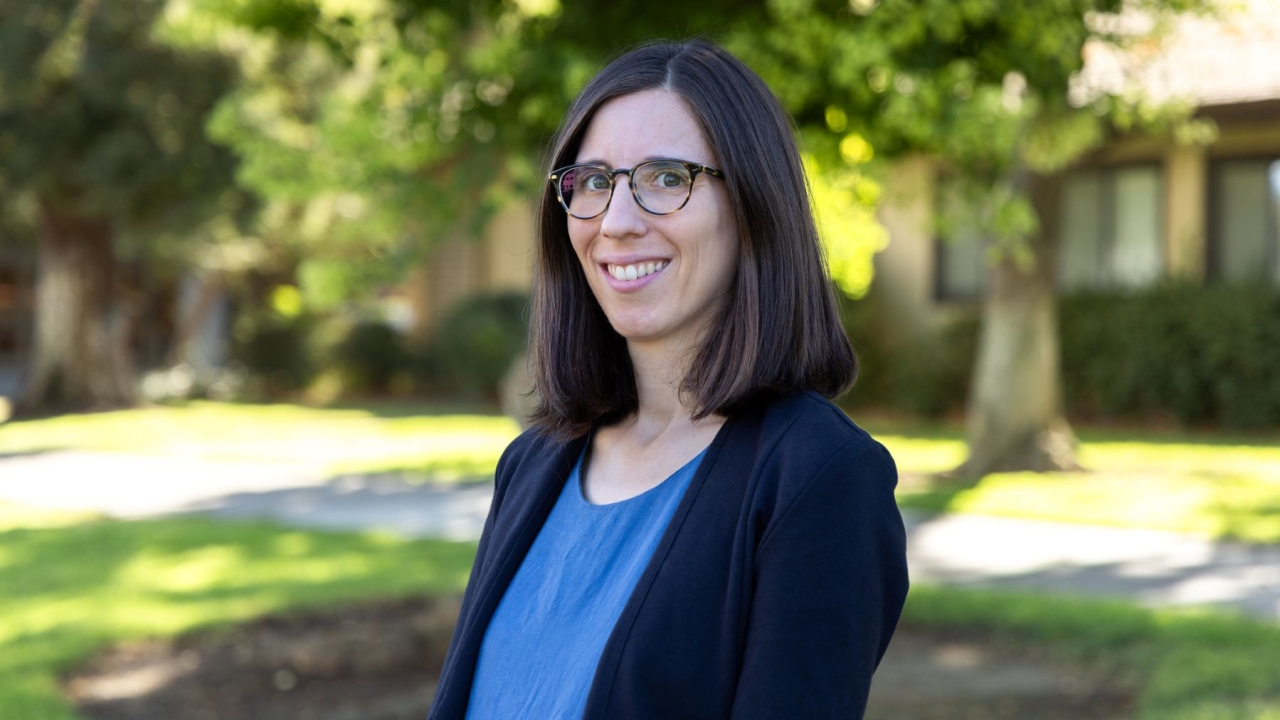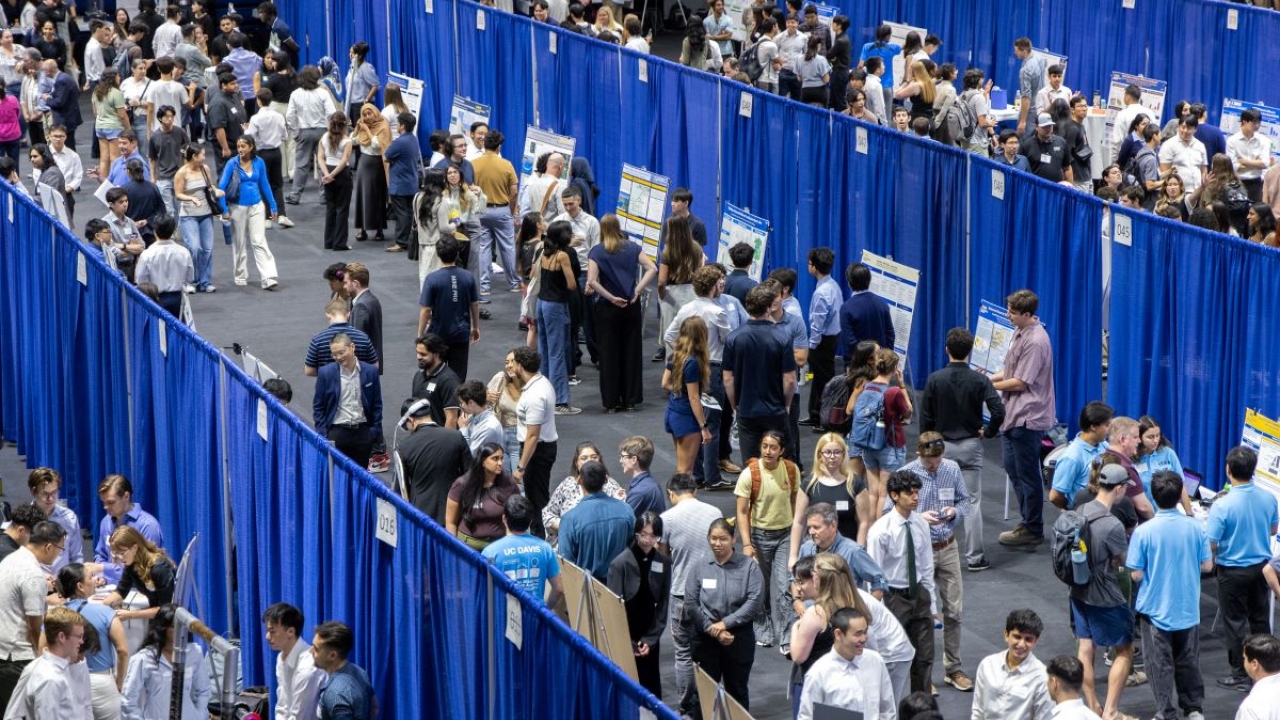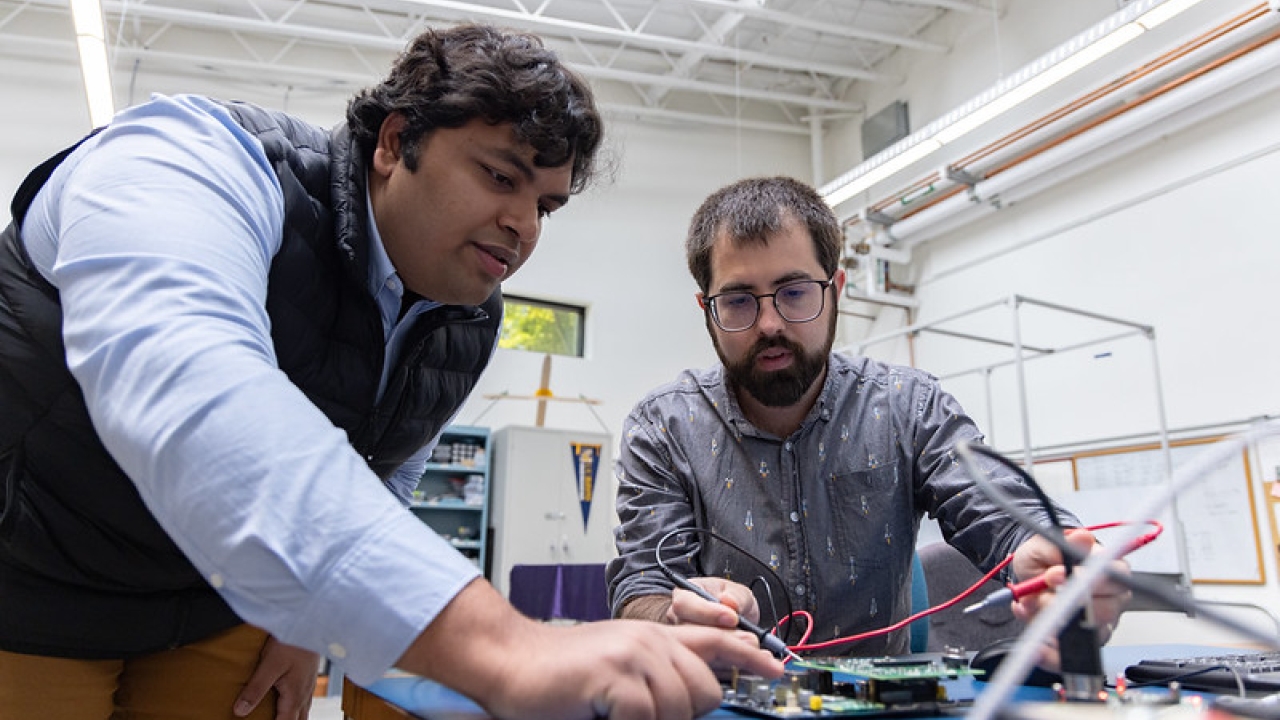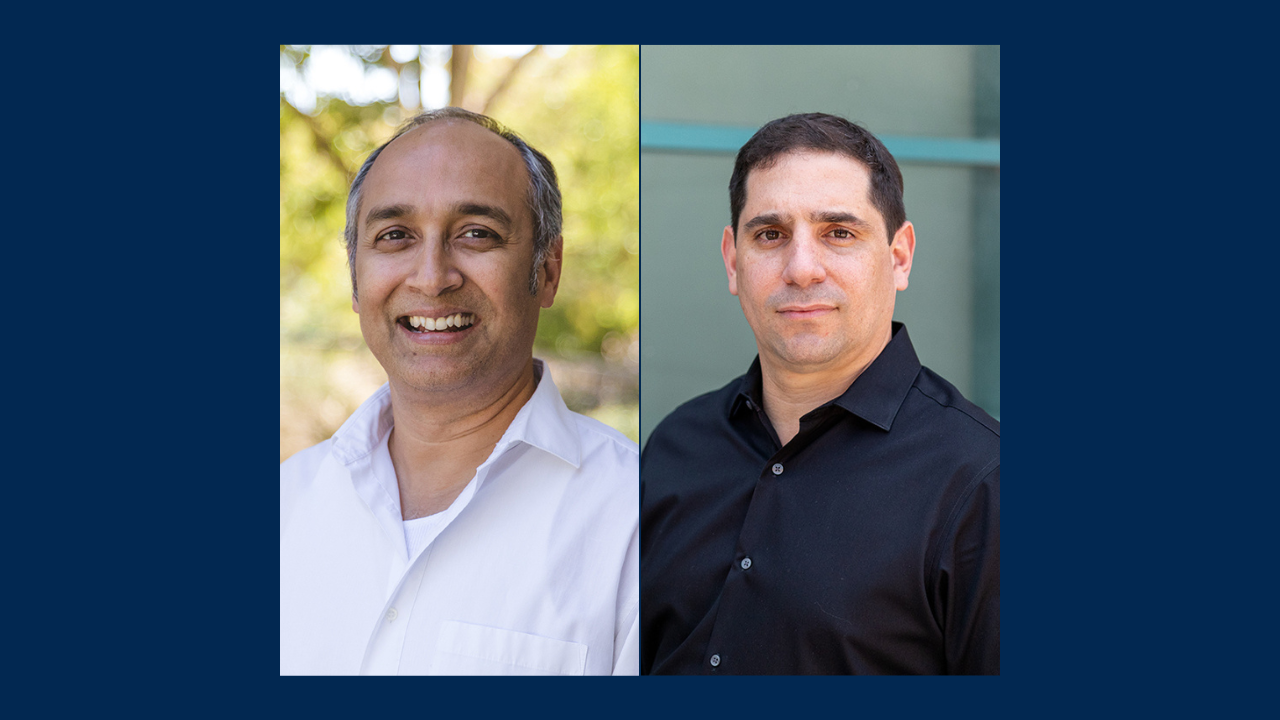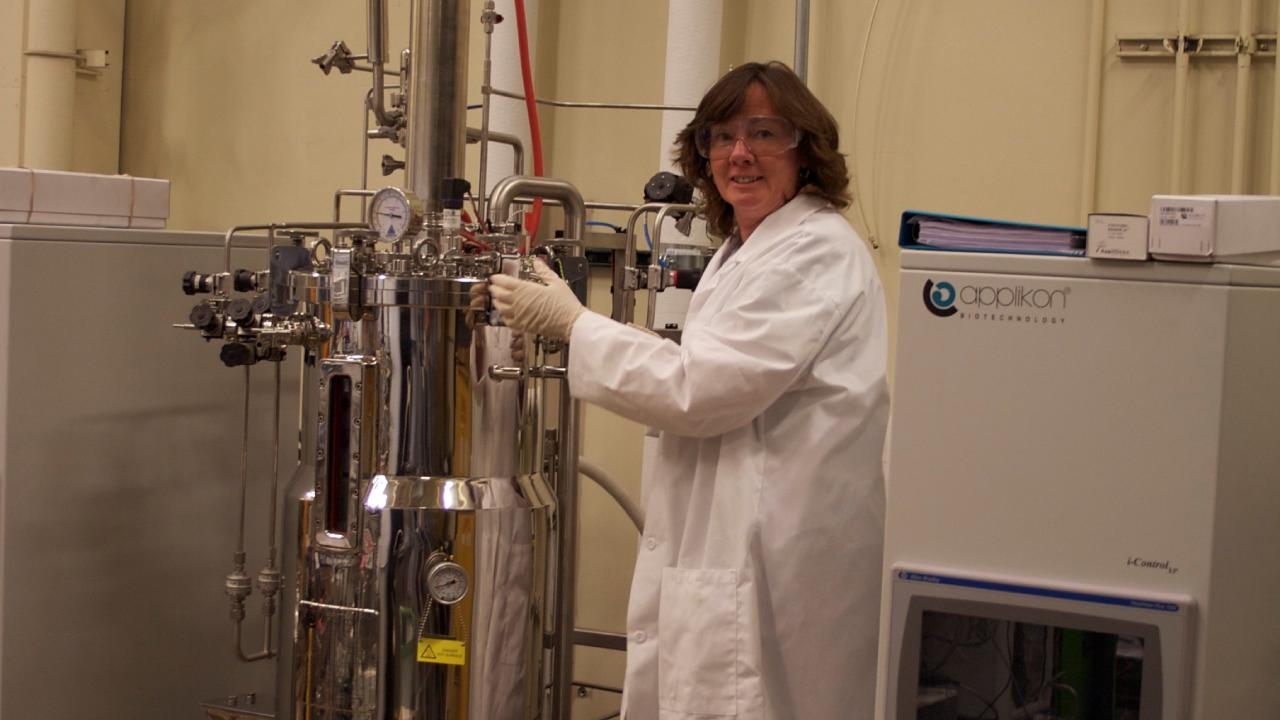
Faculty Spotlight: Karen McDonald
This spotlight is part of our 2022 International Women's Day feature.
Describe your personal and professional background and current role in the College of Engineering.
I am a professor in the Department of Chemical Engineering. I grew up in the S.F. Bay Area in San Mateo (one of four girls in my family). I completed a B.S. in chemical engineering at Stanford University, an M.S. in chemical engineering at UC Berkeley, and a Ph.D. in chemical engineering at the University of Maryland, College Park. I joined the chemical engineering department in 1985 (over 36 years ago!), where I became the first woman faculty member. I currently teach courses in our Biochemical Engineering program, train and mentor graduate and undergraduate students in research and work with faculty on campus and other universities on various research projects. Previously I served as the Associate Dean for Research and Graduate Studies in the College of Engineering for 13 years.
What led you to the engineering field?
I have always been interested in learning how things are made. Growing up, I recall school field trips to manufacturing plants, ranging from ketchup to chocolate, and being amazed at the production speed, scale and automation. I wanted to understand all of the different steps involved in the process. I chose to major in chemical engineering in college because of its foundation in process engineering and because I felt it was one of the broadest engineering disciplines since it required chemistry and math, physics and computer programming. Now I work in biochemical engineering (which didn’t exist when I was a student), which is even broader as it requires biological sciences in addition.
Highlight your current research. What do you love about it, why are you excited and how do you stay motivated?
My current research within biochemical engineering focuses on developing processes to make recombinant proteins using biotechnology that are faster, less expensive, more sustainable/environmentally friendly and more globally deployable than current methods. We make these proteins in plants because they can grow using sunlight, water and simple nutrients and make complex proteins. Our current projects range from making SARS-CoV-2 antigens and therapeutics that could potentially be used in the fight against COVID-19 to making bone-health therapeutics that could be used for astronauts on Mars. I love the fact that we can envision the need for a protein (it could be a known or novel protein), design it on the computer, quickly synthesize the gene and produce it in our plant-based systems so it can be characterized and tested. I also love that the field is interdisciplinary, combining synthetic biology, plant biology, bioprocess engineering, and medicine. I am excited by the availability of new synthetic biology tools, the rapid growth of cellular agriculture start-up companies and technology innovations in indoor/vertical agriculture. It is easy to stay motivated when so many problems need to be solved, from combatting pandemics to sustainable food production. The technologies that our group and others in the field are developing can help solve them.
The 2022 International Women’s Day theme is #BreakTheBias. How do you support gender equity and #BreakTheBias in the engineering field?
I have promoted engineering as one of the most rewarding fields for women throughout my career. It is intellectually fulfilling as it is technically challenging, requires creativity and constantly evolving. It is personally fulfilling to solve major societal problems and is financially rewarding. Some of the ways I support gender equity in engineering include promoting and participating in implicit bias training, outreach and mentoring of women students and faculty, nominating women students for fellowships/awards, helping women graduate students expand their professional networks, providing workshops with faculty colleagues on “Making the Shortlist — Crushing the Interview: Keys to securing your first academic position” and considering gender distribution of speakers when organizing seminar series.

